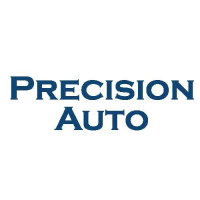19
from the water level to the pump suction centerline and converted to PSIG by dividing
by 2.31. A slight variance may be observed due to friction losses in suction piping. Any
restriction must be corrected immediately or severe pump damage will result.
12.5.2 Misaligned coupling
Another source of noise would be a misaligned coupling between pump and motor.
Check this by applying a straight edge across coupling halves at 90º and 180º. Straight
edge should rest evenly on both coupling halves. Shim pump and/or motor, if necessary,
to bring coupling into perfect alignment vertically and laterally. Check pump for free
rotation by turning coupling manually.
12.5.3 Pipe alignment
Be sure piping connections at pump are properly aligned and supported to eliminate any
strain on pump casing. Forcing piping into place will result in misalignment of pump,
causing noise and structural damage.
12.5.4 Vibration
Vibration can be induced by bent or broken shafts, worn bearings, or binging of the
impeller due to foreign matter entering the pump. Worn or damaged shafts and
bearings must be replaced. Remove any contaminants in the pump and replace
damaged parts. It is essential that the source of contamination by found and eliminated
BEFORE returning the pump to service.
12.6 Overflow
An overflow condition may result from malfunction of the trap or the water inlet valve.
12.6.1 Inspect trap for accumulated dirt at the valve seat and clean, if necessary.
Periodically remove the drain plug and drain sediment.
12.6.2 If trap is functioning properly, inspect water inlet float for possible water-logged
condition. Make certain that water inlet valve control linkage is properly adjusted to
maintain specified operating level in deaerator.
12.7 Motors
Any number of reasons exists for motor failure. Some of the most common are as
follows:
12.7.1 Tripped starter overload
– Reset and check motor and pump for proper operation.
12.7.2 Improper power supply
– Check voltage and motor nameplate requirements.
12.7.3 Incorrect connections
– Check wiring diagram.
12.7.4 Mechanical failure
– Check for free rotation; examine bearings.
12.7.5 Short circuited windings
– Indicated by blown fuse or failure to start. Motor must be replaced.
12.7.6 Overload
– Check pump for proper operation and free rotation.
12.7.7 One phase open in three phase circuit
– Check power supply lines.
12.7.8 Vibration
12.7.8.1 Check alignment of pump and motor.
12.7.8.2 Defective bearing – Replace

